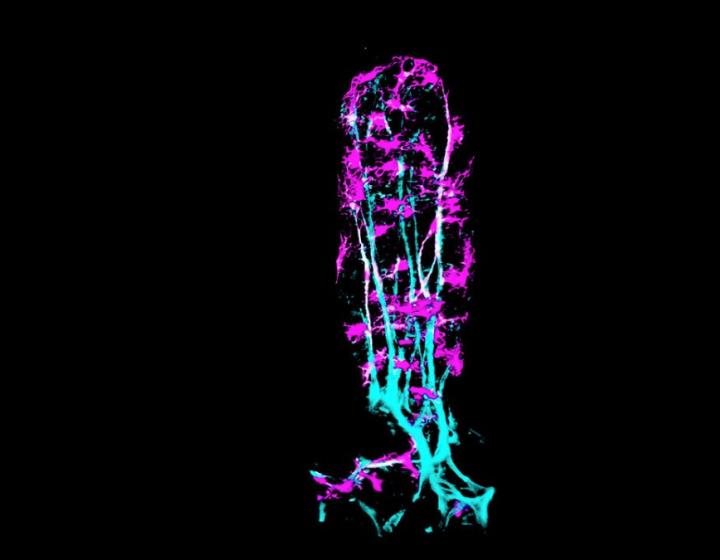Clinical Investigators’ Day gives residents the research spotlight
Giving a scientific talk at a conference for the first time can be a terrifying, anxiety-inducing experience. The organizers of Clinical Investigators’ Day, however, hope that their event can make that process a little easier for participating residents.

On October 6, veterinary residents had the opportunity to showcase their latest research findings and to polish their presentation skills at the 12th annual Clinical Investigators’ Day. The event coincided with the New York State Fall Veterinary Conference, which enabled the residents to communicate their work to interested veterinarians visiting from all over the state.
“Our residents are the ones who are out there on the forefront, seeing patients and doing this research with their mentors,” says Dr. Elizabeth Buckles, associate clinical professor of Biomedical Sciences, and a co-chair of the event. She says that it’s important to make the community aware of ongoing research and clinical trials at the College, so that it can find greater application to advance animal health.
Clinical Investigators’ Day also gives residents a chance to get feedback on their presentations and to field questions from a friendly audience. A panel of distinguished faculty from different specialties judged the presentations and gave constructive comments regarding the scientific merit of their work and the quality of their presentations.
“Scientific research is meant to stand up to critique,” said Dr. Theodore Clark, professor of Parasitology and Immunology, and a member of the judging panel. “It’s not easy to give these kinds of talk and the more practice that people have, the better. The experience is really good, in terms of sharpening up their message and having to answer questions on their feet.”

Residents presented their research on diverse topics including the metabolism of Alaskan sled dogs during races, a new test for detecting pesticide exposure in red-tailed hawks, and investigations into a new drug to treat feline herpes infections. First- and second-year trainees, who did not yet have data, had the opportunity to present their research proposals.
“If you’re doing research, you should share your project and maybe there can be some application clinically,” says Dr. Lauri-Jo Gamble, who gave two talks at the event. “The feedback is very important, not just for the presentation, but also in general for future investigations.” She says that the experience was a good trial run for a talk she will be giving at an upcoming conference.
“We had a lot of residents participate, and that’s really the ultimate goal” says Dr. Erin Daugherity, a clinical veterinarian in Biomedical Sciences and a co-chair of the event. “It’s also exciting to see different departments overlap in the same room and to hear all of the really good questions from the judges.” Several faculty members served as moderators and Dr. Mary Martin and Dr. Tracy Stokol also acted as co-chairs for the occasion.
At the day’s conclusion, Dean Lorin Warnick announced the names of the winning presenters. Best Research Proposal went to Dr. Racheal Labitt, Dr. Nathaniel Kollias received Best Presentation Style, Dr. Lauri-Jo Gamble was recognized for Best Scientific Content, and Dr. Kathryn Zatroch received the Best Overall Presentation award.
The winning residents received travel funds, which will enable them to present their practiced talks to a broader audience.




Above, Dean Lorin Warnick stands with the winning presenters from left to right: Dr. Racheal Labitt, Dr. Kathryn Zatrock, Dr. Lauri Jo Gamble, Dr. Nathaniel Kollias



